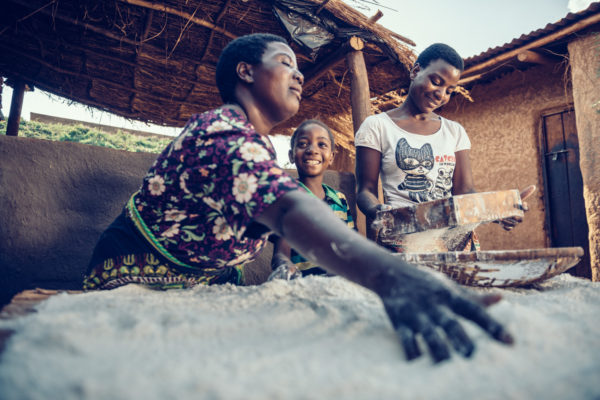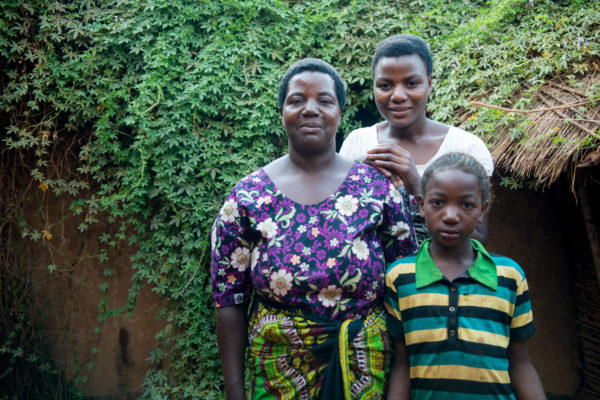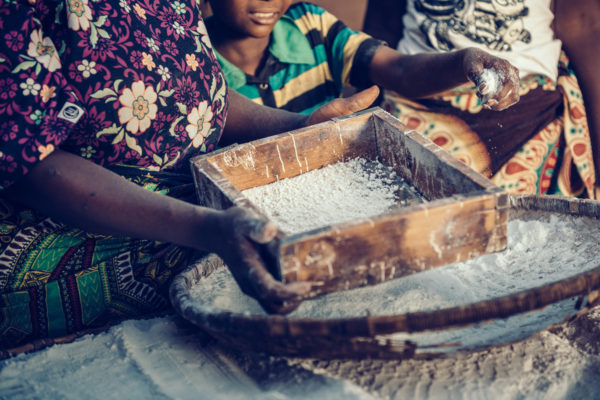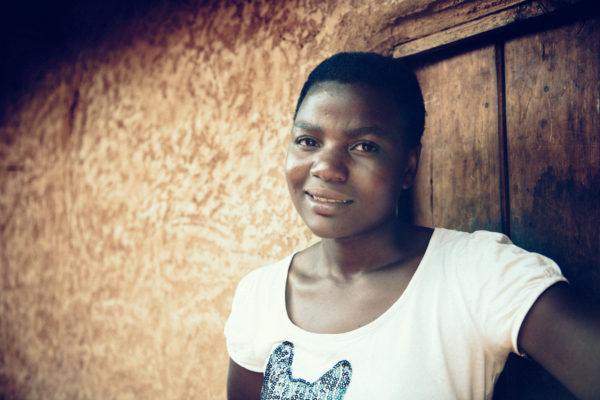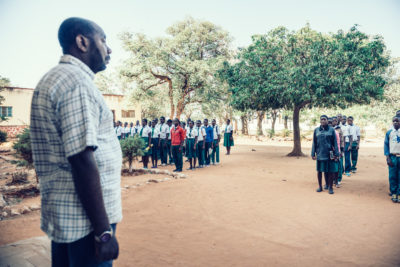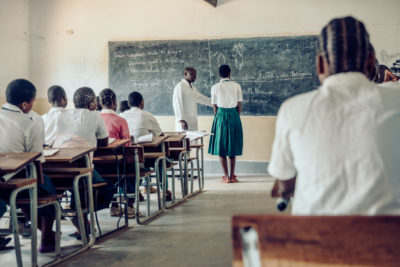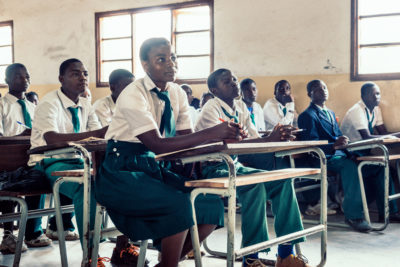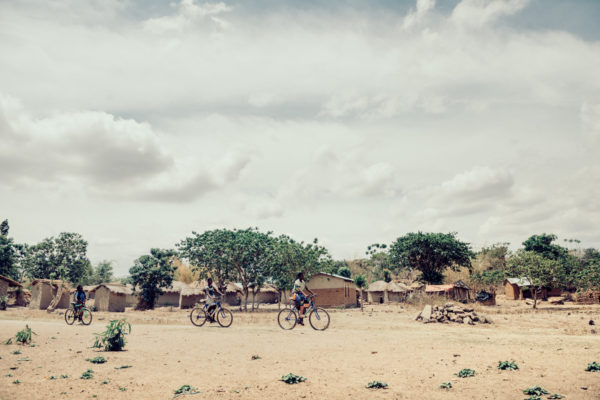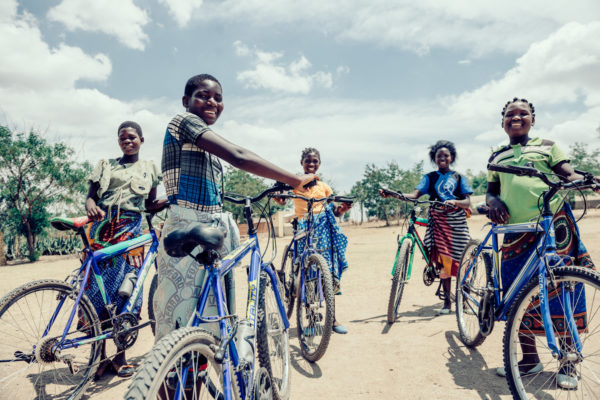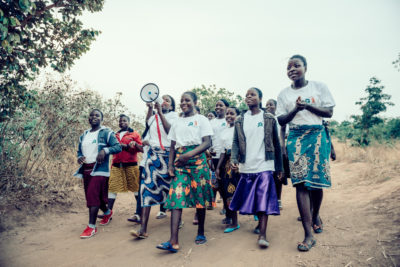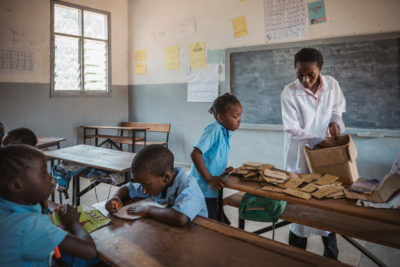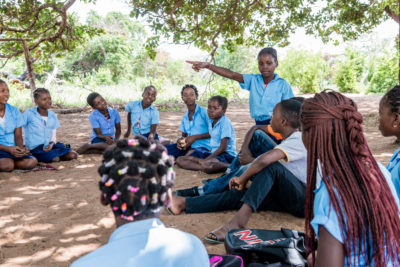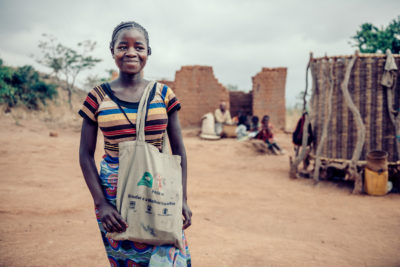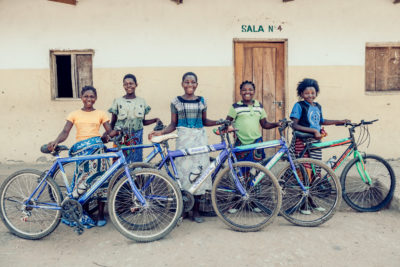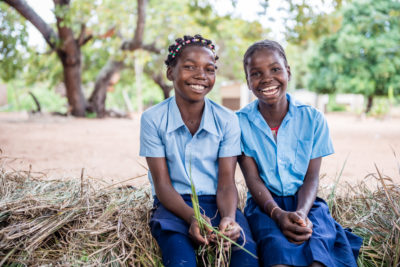Alessi
Everyday challenges in rural Mozambique are forcing girls out of school, reducing their chances of success in the pursuit of a better life. Alessi is a girl living in Angonia, Tete province, who is not giving up on her dream of going to university.
A loud bell rings out across the walls. Alessi is awaken by its familiar sound. It’s 5 am in Angonia, a small village in central Mozambique. She greets Sinati waking up above her. School starts at 7.30 so in the next hour Alessi and the other girls will clean the dorm and get ready for class. From there, it’s maize porridge at the cafeteria and off to school in their pine green uniform.
Alessi’s morning sounds like any other teenage girl’s routine! But in reality Alessi’s life is a little different from the ones that over half of all Mozambican girls her age, live. And her future will also be. Only because she goes to school. Her story is a reminder of the importance of girls’ education support.
The average Mozambican teenage girl would have already dropped out of school, either forced by her lack of means or by her parents’ disbelief in the need for her education. She would spend her mornings tending the family’s vegetable garden and her afternoons performing domestic duties. In fact, most Mozambican women spend an average of 14 hours per day performing agricultural and domestic chores.
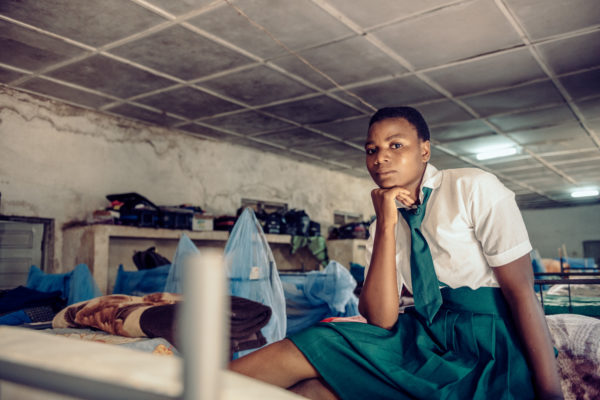
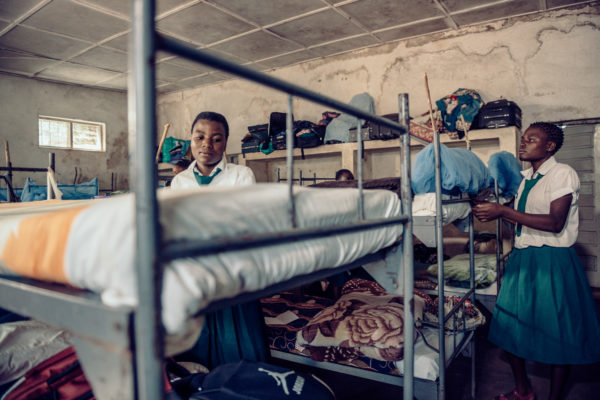
Life is harsh for a girl living in rural Mozambique. Primary education is free but students still need to pay for clothes and stationery, and when money for food is scarce, school costs naturally take the back seat. Remote districts lack secondary schools, so once kids finish primary education they often need to travel long distances through national roads to get to secondary school. To make matters worse, the value of school is not always straight forward in parents’ perceptions. Mozambique still faces issues with poor schools’ infrastructure and quality of education. In the end, girls are affected by these conditions more than boys, with schools having higher male attendance and girls having higher rates of class repetition and drop out. The result, is that less than fifty percent of girls finish primary school.
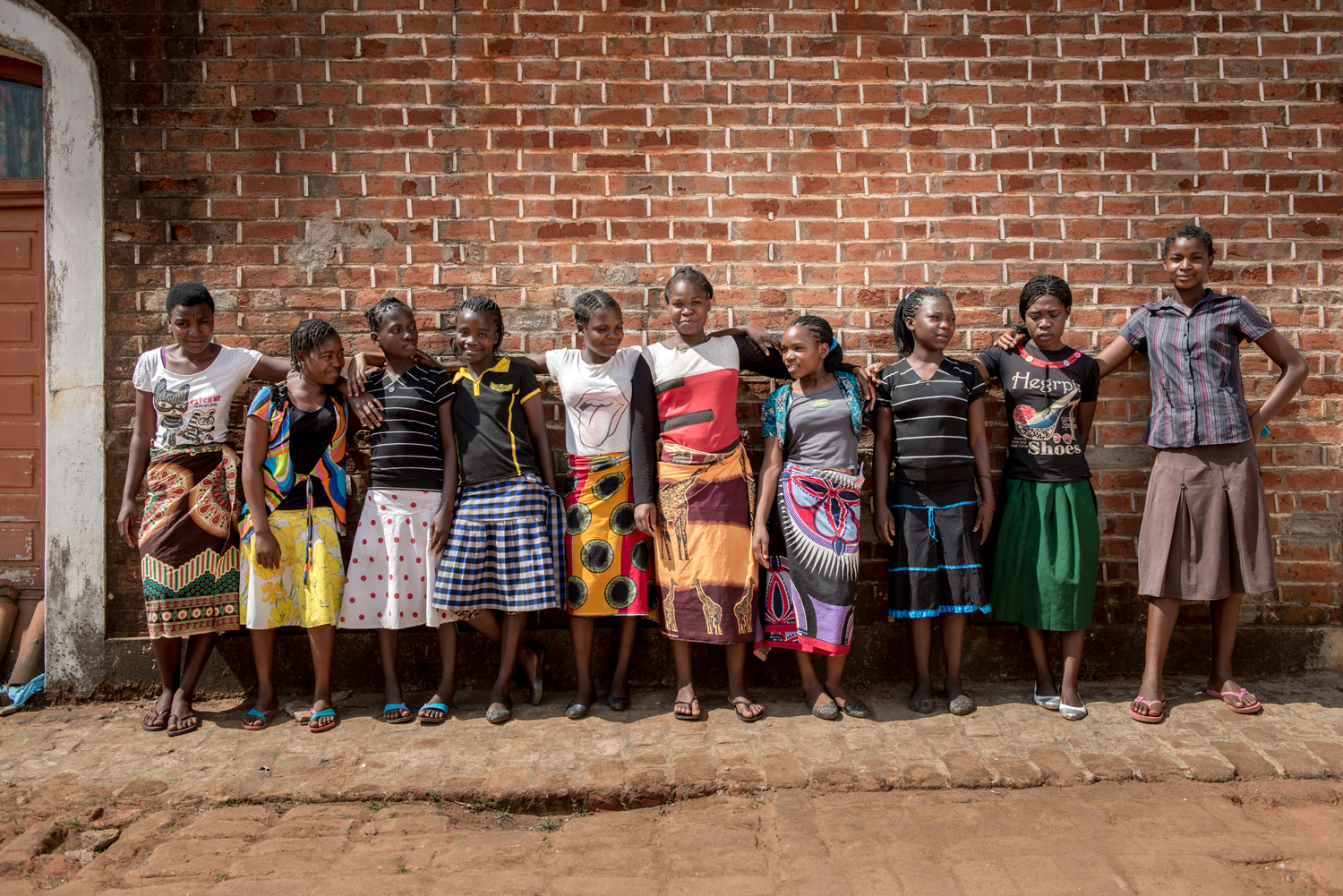
Alessi case was one of those where the costs associated with her education were unaffordable for her family. There were the tuition fees, then there was the need for proper clothing and study material. Lastly, if she wanted to study she would need to pay for rent or boarding school at Angonia, the nearest village with a secondary school, to her home. “I wanted to continue school, but when I finished grade 7, I had no hopes of studying. My father wasn’t helping us. My mother was working the fields producing beans to sell, but life was hard. My mom didn’t have money for me to enrol on grade 8”. So she didn’t enrol, she stayed at home and helped out her mother and younger sister. But she never gave up on her desire of finishing school.
“My mom has a good heart”- Alessi doesn’t hide how much she admires her mother. When she goes back home, every month, she helps out with the house and farm.
The following year Alessi’s fate changed. The director at her former primary school knew her story. He approached her with a potential solution: a scholarship by Save the Children. Alessi was 1 of 10 girls in her community who applied for the scholarship which included support for tuition, transport and accommodation at Angonia. She got it and went back to school the following year. Today she is in grade 10.
Alessi’s scholarship is part of a larger program to improve girls’ retention in school, especially during key transition years, called Promoting Advancement of Girls’ Education in Mozambique (PAGE-M). Page-M works with public schools in rural areas of Mozambique to address the obstacles that make staying in school for girls difficult.
Finances are not the only reason why parents take their daughters out of school. Cultural attitudes also dictate girls to stay home and help at home and household subsistence farms. Girls are often married very early so their poor families can collect dowry. Child brides are much more likely to drop out of school affecting their ability to earn a living and bring up healthy and educated children.
PAGE-M has a holistic approach to overtake these barriers. On the demand side they are working with support groups and girls’ clubs in the community as well as financing radio programs to promote and defend their rights. On the financial side, the project supports students with hygiene kits, clothing and scholarships like the one Alessi receives.
Speaking to Alessi one gets the feeling that she doesn’t want anything to come in the way of reaching her goals: She doesn’t have a boyfriend or want to have one. Her life is about studying. She allows herself some distractions like sports and music but, for now, her purpose is to finish school and make it to university. One day she will be a teacher at her village. “Why?” – I asked. “To teach other people as well.”- she says. But why?” – I insist. “It’s my dream.”- she calmly replies.
It’s not hard to understand why Alessi is a source of inspiration to her sister and to the girls back at where she grew up. She is the living proof that when a girl believes and pursuits, she can make it.
To make getting to school easier PAGE-M also supports a pilot initiative that gives bicycles to girls who live far from school. Helena (second from the left) lived 9 km from her school. “When I left for school on foot I was late. Now, with the bicycle I leave at 11 and I can get to school by 12.”
More about PAGE-M
One in two Mozambican girls, gets married before the age 18. One in six Mozambican girls, gets married before age 15. However, studies show that the later she will get married, the later she will stop studying, and the later she stops studying, the higher her chances of generating income to support her family.
These are the premises in which Page-M builds its community work to keep girls at school. By attempting to demystify some beliefs, community activists motivate girls to know their rights. “If she (girl) has a desire to study and go to school, her will and desires denied by her own parents. They think that the place for a girl is at home as a future housewife” – Carmen Bilale, District Gender Coordinator for Page-M, speaks about some cultural beliefs being addressed and questioned by community groups supported by the program.
In addition to community activists, PAGE-M also supports girls clubs. Comprising an average of 25 members, girl clubs are spaces where girls feel free to share their problems and find mutual support. As the president of a girls’ club on her school, Olinda Munguambe (below) takes the lead in spreading the word on girls’ rights and involve more girls who might have quit studying already. – “If a father forces a girl to do what she doesn’t want, she can reach and make a complaint to the club. We counsel her and then meet the parents. In most cases, we have been lucky, the parents understood us”.
